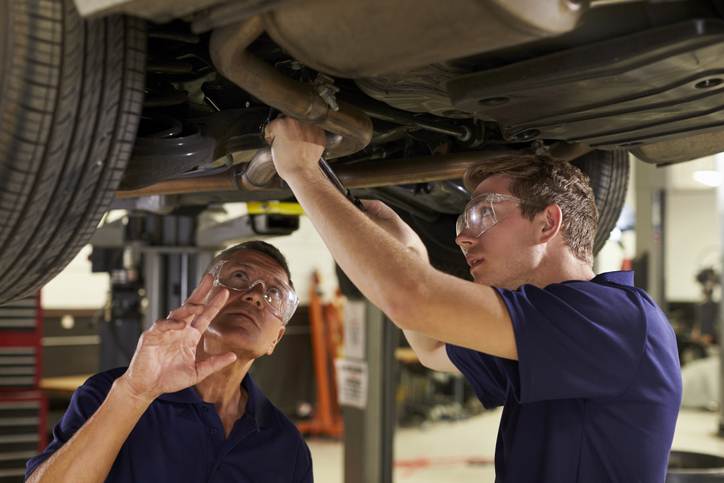
Students eager to work in the automotive industry as mechanics can prepare for an exciting career by developing the experience and skill set they need during their training. This background can help them stand out as competitive candidates during job applications.
In order to launch your careers in this field, you’ll need to prepare for job interviews. As a trained professional, you can showcase your expertise and skill and leave a lasting impression that can help you secure your dream job. This blog post will introduce three main types of questions you might face during your job interview, sharing top tips on how to navigate the conversation and succeed in creating a good first impression.
1. Responding to General Questions About Your Background
Your interview will likely cover a range of topics and questions, and it’s safe to assume that you might have to share some details about your background, motivations, and expectations. These questions are often more general, asking for information to better understand who you are and why you’re interested in working with your future employer.
They can also ask more practical questions, centered on your salary expectations or proposed availability. You might also be asked to talk about your experiences with previous employers (or hands-on training) or to supply references. In either case, it’s always good to practice what you’ll say in advance to help you feel more confident and at ease.

2. Showcasing Your Skills when Answering Technical Questions after Mechanic School
Your future employers will also want to know detailed information about your experience and skill set. During your interview, they’ll likely ask you specific questions designed to test your knowledge and abilities. This might, for example, include your experience with damage assessments and industry software, as well as your ability to work with technical plans.
As a mechanic school graduate, you’ll have developed your skills in all aspects of the job—allowing you to showcase a high degree of technical knowledge along with a demonstrated ability to use industry-standard tools and practices. You’ll also want to emphasize your key strengths, using this opportunity to share more information about what you can do and how you can do it well.

3. Sharing Your Experience and Thought Process through Scenario-Based Questions
It should be noted that the job interview will likely include scenario-based questions. These types of questions use a “what-if” framework, placing you in a hypothetical situation to better understand and visualize how you would react in those circumstances. By asking these questions, your future employers can judge whether or not you’d be a great fit.
Questions can include anything from how you deal with diagnostic errors and unhappy customers to safety violations and co-worker disagreements. Through your answers, you’ll share valuable insight into your personality and way of thinking. You can take this opportunity to share what you’ve learned during your auto mechanic training through short personal anecdotes, showing that you’ve experienced similar situations and have handled them with success in the past.
By anticipating these questions and working on your answers in advance, you will be better positioned to impress your future employer—proving that you’re the right person for the job. The skills and experiences you gain from your practical training will prepare you for this process, setting you up on a path for success.
Are you interested in exploring auto careers?
Contact CATI for more information!
